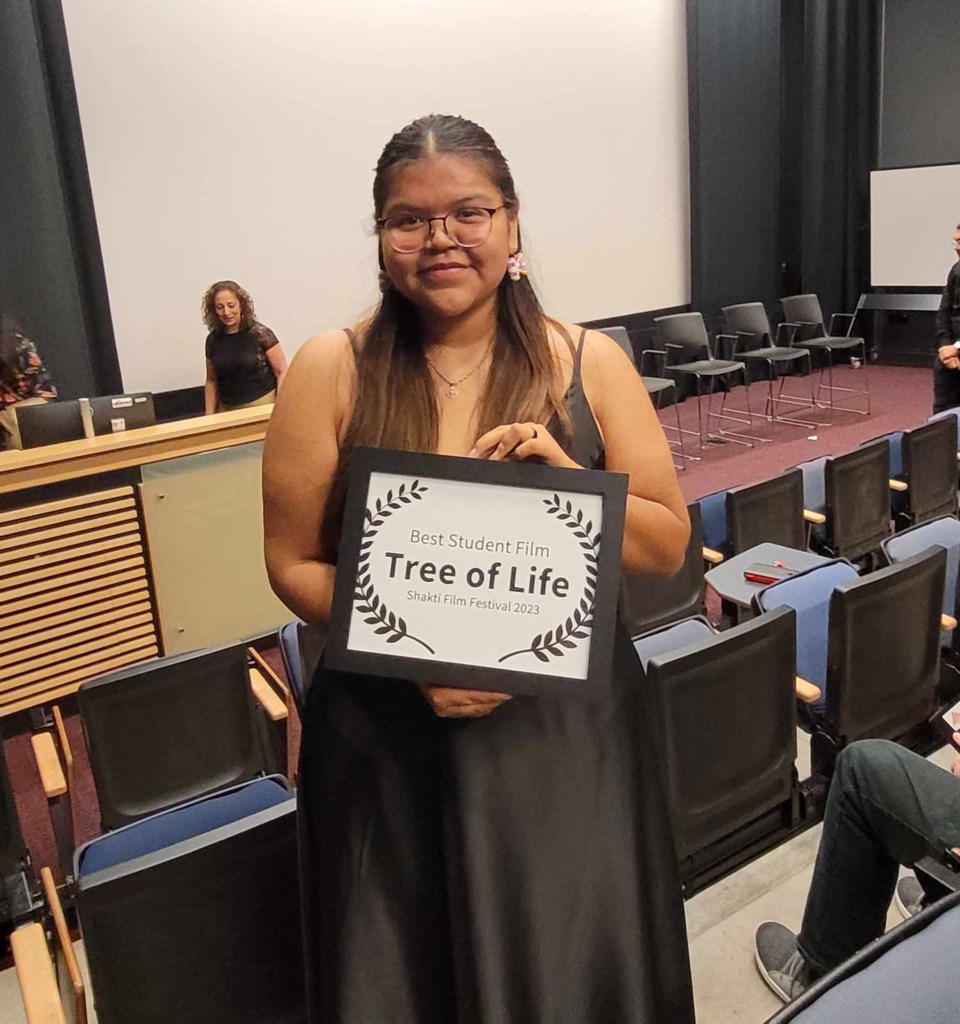With her heartfelt, dramatic short Tree of Life, Hannah Jones is now an award-winning filmmaker.
The Capilano University student from the Lil’wat Nation recently earned the nod for Best Student Film at the Shakti Film Festival in Vancouver.
Tree of Life is set during the Sixties Scoop, during which First Nations children were forcibly removed from their families and placed into the child welfare system. Jones said she was surprised by the number of people who have not heard of the Sixties Scoop before, even within her own family.
“The people around me didn’t really know about it. I was shocked to hear that,” she said. “I just think it was an important story to touch base on. The government took Indigenous children out of their homes and put them with non-Indigenous families. That way, they forget. They don’t learn anything.”
Jones said she would like to see her movies on the big screen so more people can learn about her community’s history and culture.
The depiction of shapeshifters in Tree of Life is based on a story she heard years ago.
“I was inspired by my grandmother Theresa Jones’ story,” she said. “She was looking for pine mushrooms and she got tired. She sat down and had a snack. She looked up and saw a wolf in front of her.
“She was scared, and she started yelling for my late uncle Mike. Then, she looked back at it and it was shapeshifting. It was changing. In my story, she changes to a cedar tree. I’ve heard about shapeshifters a few times while growing up. I think it’s a legend.”
Jones’ plot is the perfect mix of history and legend. She tried to capture the feeling of loss First Nations children felt during the Sixties Scoop.
“There is this little girl. She lives with her family. She gets taken out of her home,” she said. “She goes from foster home to foster home. At the age of 17, she feels lost. She goes to the forest to end her life, because she doesn’t feel like she has family or friends. As soon as she raises a knife, her grandmother comes back as a shapeshifter. She had passed away, but she comes back as a spirit type of thing.”
The young girl’s grandmother assures the protagonist she is not alone in the world.
“Her grandma tells her to [live] and to keep fighting,” said Jones. “She explains that she has family and that she has to keep looking. The girl doesn’t remember her grandma, because she had died years ago and so much had happened. She doesn’t believe this random lady in the woods. She tells her to leave her alone. The girl raises the knife to stab the grandma, but then the grandma shapeshifts into a cedar tree.”
Jones said she did not see any screen adaptations of the legends she heard growing up. She is happy to be able to use her incredible skill to show the world these stories.
“This is very important to me,” she said. “Over the past year, I’ve said to my professors that I am so happy that a light is being shone on residential schools. It’s getting deserved coverage. I also want to share that we are more than our trauma. We are more than what happened to us. We have these amazing legends that I grew up listening to.”
Jones feels her community has so much to share, and would like to share her filmmaking skills with her younger peers.
“It would be so cool to see them on the big screen,” she said. “We are creative. All of us have different stories. I just want to share that we are more than our trauma. I want to create a couple of feature films. Once I gain the studio knowledge and the business part of things, I would like to go back to my res and teach the youth about filmmaking.




